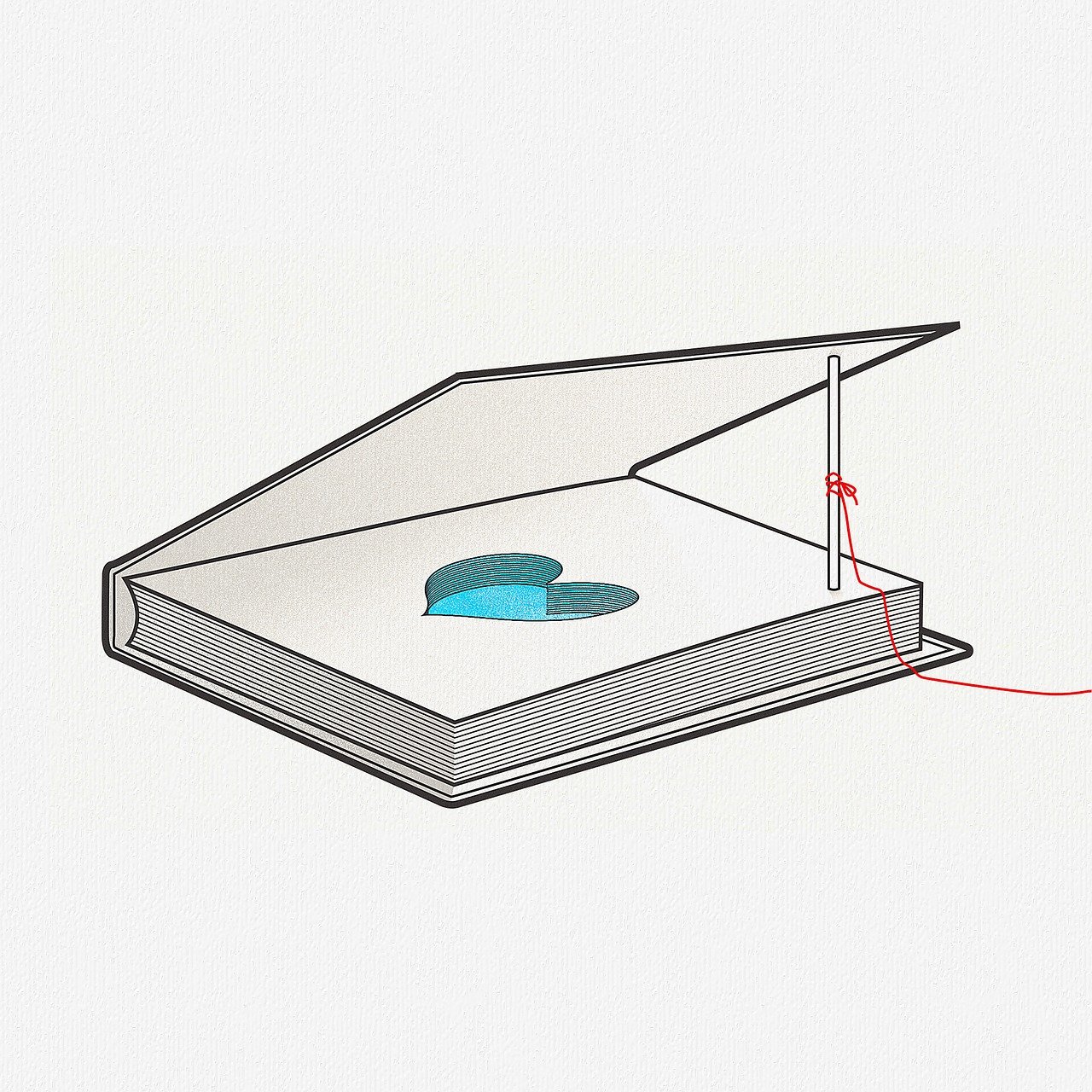Edgar Allan Poe, a través de sus famosos 12 cuentos cortos policiacos, presenta una compleja dicotomía moral que se refleja a lo largo del relato. Aunque la narrativa principal se entreteje con elementos fantásticos y terroríficos, la profundidad del contenido se basa en un profundo análisis de la condición humana, la justicia y el juicio.
No es solo el fin que determina la moralidad; es el camino hacia ella. El detective expone el poder desgarrador del misterio, a su vez, la lógica y la justicia se enfrentan al caos humano. La búsqueda de la verdad, incluso en medio del drama, se vuelve un tema fundamental en los cuentos cortos policiales. De esta forma, Poe nos muestra que la búsqueda de la verdad y la justicia no solo es lo importante, sino también el medio para llegar a ella.
En este sentido, los cuentos policiacos cortos de Poe nos presentan un retrato fascinante de la naturaleza humana. Los personajes que pueblan sus historias son complejos y multitexels, con motivaciones contradicciones e impulsos contradictorios. Al mismo tiempo, se nos muestra how the dualidad entre la virtud y la perdición se refleja en las acciones de los individuos y cómo el conflicto entre la razón y la emoción puede llevar a consecuencias mortales.
Edgar Allan Poe y el misterio del género policial
Edgar Allan Poe, considerado el padre del género policial moderno, abordó con maestría el tema de la detective en sus cuentos cortos policiales. A través de sus obras, creó un género literario que fusionaba el elemento detectivesco con el suspense y la tensión psicológica, revolucionando la narrativa policial.
En los cuentos de Poe, el detective se convierte en una figura emblemática, encargado de descifrar los misterios y resolver los crímenes. Sin embargo, su abordaje del tema no se limita solo a los aspectos narrativos más obvios. También explora la psicología del criminal y el detective, mostrando cómo sus mentes trabajan para resolver los enigmas que componen los cuentos policiales cortos.
La dualidad entre la virtud y la perdición se refleja también en las acciones de los detectives, quienes al mismo tiempo buscan la justicia pero también deben enfrentar sus propias debilidades y complejidades. Esta dicotomía nos muestra que el género policial no solo es un tema de intriga y suspense sino también una reflexión profunda sobre la naturaleza humana.
De esta forma, los cuentos cortos policiacos de Poe nos ofrecen una mirada profunda sobre la condición humana, revelando cómo nuestras acciones y decisiones pueden llevar a consecuencias mortales.
La complejidad moral en los 12 cuentos de Poe
La búsqueda de la verdad, incluso en medio del drama, se vuelve un tema fundamental en los cuentos policiacos cortos de Poe. Sin embargo, no es solo el fin que determina la moralidad; es el camino hacia ella. El detective expone el poder desgarrador del misterio, a su vez, la lógica y la justicia se enfrentan al caos humano.
En los cuentos cortos policiales de Poe, la moralidad no es algo predefinido y estático. En lugar de eso, se presenta como una batalla constante entre la razón y la emoción, entre la virtud y la perdición. Los personajes que pueblan sus historias son complejos y multitexels, con motivaciones contradictorias e impulsos contradictorios.
La búsqueda de la verdad se convierte en un proceso moralmente ambiguo, donde el juicio y la justicia no son algo simplista o lineal. En lugar de eso, se presenta como una lucha continua entre las fuerzas del bien y el mal, lo que nos lleva a reflexionar sobre nuestra propia naturaleza humana.
En este sentido, los 12 cuentos policiacos cortos de Poe no solo presentan intriga y suspense sino también un profundo análisis moral sobre la condición humana.
El poder desgarrador del misterio, la verdad y la justicia
El detective en los cuentos policiacos cortos de Poe nos presenta un retrato fascinante de la investigación detectivesca. La lucha entre la razón y la emoción se vuelve una batalla constante, donde el detective debe utilizar su inteligencia y su lógica para desentrañar los misterios y resolver los crímenes.
Sin embargo, no es solo la lógica que guía al detective en su búsqueda de la verdad. También está impuesta por un deseo ferviente de justicia, lo que hace que el proceso de investigación sea un viaje profundamente moral. El detective no solo busca descubrir la verdad sino también buscar la justicia, lo que puede llevar a consecuencias mortales para los involucrados.
En este sentido, los cuentos cortos policiacos de Poe nos presentan un retrato inquietante y fascinante de la condición humana. La búsqueda de la verdad y la justicia se convierte en un proceso desgarrador que no only reveals the secrets of the crimes but also uncovers the innermost fears and doubts of those involved.
La investigación detectivesca nos muestra que la verdad puede ser brutal y aterradora, pero sin ella no podemos asegurar la justicia. Y es aquí donde entra en juego el poder desgarrador del misterio, que nos empuja a reflexionar sobre nuestra propia naturaleza humana y la complejidad moral de nuestras acciones.
La dualidad humana entre la virtud y perdición
Los cuentos cortos policiacos de Poe nos presentan un retrato fascinante de la dualidad humana entre la virtud y la perdición. Los personajes que pueblan sus historias son complejos y multitexels, con motivaciones contradictorias e impulsos contradictorios.
En muchos casos, los personajes nobles y virtuosos se ven atraídos por placeres y pasatiempos que les llevan hacia la perdición. Al mismo tiempo, aquellos que parecen estar condenados al error pueden revelar una profundidad moral y un poder de resistencia que nos hace reflexionar sobre nuestra propia naturaleza humana.
Esta dualidad nos muestra que la virtud no es algo absoluto o predefinido. En lugar de eso, se presenta como una lucha constante entre el bien y el mal, lo que nos hace reflexionar sobre nuestra propia capacidad para elegir entre ambos.
Los cuentos cortos policiacos de Poe nos presentan un retrato inquietante y fascinante de la condición humana. La dualidad entre la virtud y la perdición nos muestra que nuestra naturaleza es compleja y ambigua, lo que nos lleva a reflexionar sobre nuestros propios valores y principios morales.
En este sentido, los cuentos cortos policiacos de Poe no solo son un ejercicio en la investigación detectivesca sino también una reflexión profunda sobre la naturaleza humana.
Reconceptualizando las dicotomías del bien y el mal
Los cuentos cortos policiacos de Poe nos presentan un retrato inquietante y fascinante de la condición humana. La dualidad entre la virtud y la perdición se refleja en la complejidad moral de los personajes, que pueden exhibir rasgos contradictorios y multitexels.
En lugar de ofrecer una representación simplista del bien y el mal, Poe nos muestra un universo donde las nociones de bondad y maldad están en constante tensión. Los personajes compiten entre sí por la atención y la voluntad divina, lo que nos lleva a reflexionar sobre nuestra propia naturaleza humana.
En este sentido, los cuentos cortos policiacos de Poe no solo son un ejercicio en la investigación detectivesca sino también una reconceptualización de las dicotomías del bien y el mal. El autor nos presenta un mundo donde la moralidad es menos una cuestión de black-and-white que de sombras grises y tonos ambiguos.
La obra de Poe nos invita a reevaluar nuestras propias nociones sobre la bondad y la maldad, y a considerar el papel que juegan las motivaciones, los impulsos y las circunstancias en nuestra conducta moral. Esta reconceptualización de las dicotomías del bien y el mal nos permite profundizar en la complejidad moral de la condición humana y reflexionar sobre nuestros propios valores y principios morales.
Los cuentos cortos policiacos de Poe nos presentan un retrato fascinante y complejo de la condición humana, donde las dicotomías del bien y el mal se revelan como algo menos definido que una lucha constante entre motivaciones contradictorias y circunstancias ambivasivas.
La lucha interna entre razón y emoción, la base de la moralidad
Los cuentos cortos policiacos de Poe nos presentan un retrato fascinante de la lucha interna entre razón y emoción. En sus obras, los personajes se ven obligados a confrontar sus propias debilidades y vulnerabilidades, lo que nos permite explorar la base de la moralidad.
En muchos casos, las emociones pueden tomar el control y despedazar la razón, llevando a los personajes a cometer errores y malas acciones. Sin embargo, también hay momentos en que la razón prevalece sobre las emociones, guiando a los personajes hacia decisiones morales correctas.
Esta lucha interna entre razón y emoción se refleja en la complejidad moral de la condición humana. La obra de Poe nos invita a reflexionar sobre nuestros propios valores y principios morales, y a considerar cómo estos pueden ser influenciados por nuestras emociones y motivaciones.
En este sentido, los cuentos cortos policiacos de Poe nos presentan un retrato inquietante y fascinante de la condición humana. La lucha interna entre razón y emoción se revela como la base de la moralidad, y nos permite profundizar en la complejidad moral de nuestros propios actos y decisiones.
La obra de Poe nos invita a reflexionar sobre la naturaleza humana y el papel que juegan nuestras razones y emociones en nuestra conducta moral. Al considerar cómo estos dos aspectos se entremezclan y se influencian mutuamente, podemos empezar a comprender mejor la complejidad moral de la condición humana.
Los cuentos cortos policiacos de Poe nos presentan un retrato fascinante de la lucha interna entre razón y emoción, que se revela como la base de la moralidad. Esta obras nos invitan a reflexionar sobre nuestra propia complejidad moral y a considerar cómo nuestras razones y emociones pueden influir en nuestros actos y decisiones.
La influencia de los cuentos en nuestra propia historia individual
Los cuentos cortos policiacos de Poe tienen una gran influencia en nuestra propia historia individual. Al presentarnos diferentes mundos y personajes, estos cuentos nos permiten reflejar sobre nuestros propios valores, principios morales y la complejidad de la condición humana.
La obra de Poe nos invita a reflexionar sobre el valor de la verdad, la justicia y la búsqueda de la verdad en nuestra propia historia individual. Al considerar cómo los personajes de sus cuentos enfrentan y resuelven misterios y dilemas, podemos empezar a comprender mejor cómo nuestros propios valores y principios morales pueden influir en nuestras decisiones y actos.
Los cuentos cortos policiacos de Poe también nos permiten reflexionar sobre la naturaleza humana y el papel que juega en nuestra propia historia individual. Al considerar cómo los personajes enfrentan sus propias debilidades y vulnerabilidades, podemos empezar a comprender mejor cómo nuestras propias emociones, motivaciones y circunstancias pueden influir en nuestros actos y decisiones.
En este sentido, los cuentos cortos policiacos de Poe nos permiten reflexionar sobre nuestra propia historia individual y considerar cómo nuestros valores, principios morales y la complejidad de la condición humana pueden influir en nuestras decisiones y actos. Al considerar cómo diferentes personajes enfrentan y resuelven misterios y dilemas, podemos empezar a comprender mejor nuestra propia historia individual y reflexionar sobre el papel que jugamos en ella.
Los cuentos cortos policiacos de Poe tienen una gran influencia en nuestra propia historia individual. Al presentarnos diferentes mundos y personajes, estos cuentos nos permiten reflexionar sobre nuestros propios valores, principios morales y la complejidad de la condición humana.
Conclusión
Los cuentos cortos policiacos de Edgar Allan Poe nos presentan un retrato fascinante y complejo de la condición humana. A través de sus obras, Poe explora temas de moralidad, justicia y verdad, revelando la fragilidad de la condición humana y la naturaleza conflicuada de nuestras acciones.
La obra de Poe nos invita a reflexionar sobre nuestra propia historia individual y considerar cómo nuestros valores, principios morales y la complejidad de la condición humana pueden influir en nuestros actos y decisiones. Al considerar cómo los personajes de sus cuentos enfrentan y resuelven misterios y dilemas, podemos empezar a comprender mejor nuestra propia historia individual y reflexionar sobre el papel que jugamos en ella.
En última instancia, la obra de Poe nos permite explorar la naturaleza humana y considerar cómo nuestras razones y emociones pueden influir en nuestros actos y decisiones. Al hacerlo, podemos empezar a comprender mejor nuestra propia complejidad moral y reflexionar sobre el papel que jugamos en la historia individual.
Los cuentos cortos policiacos de Poe son una llamada a reflexionar sobre nuestra propia condición humana y el papel que jugamos en la historia individual. Al considerar cómo los personajes de sus cuentos enfrentan y resuelven misterios y dilemas, podemos empezar a comprender mejor nuestra propia complejidad moral y reflexionar sobre el papel que jugamos en la historia individual.










